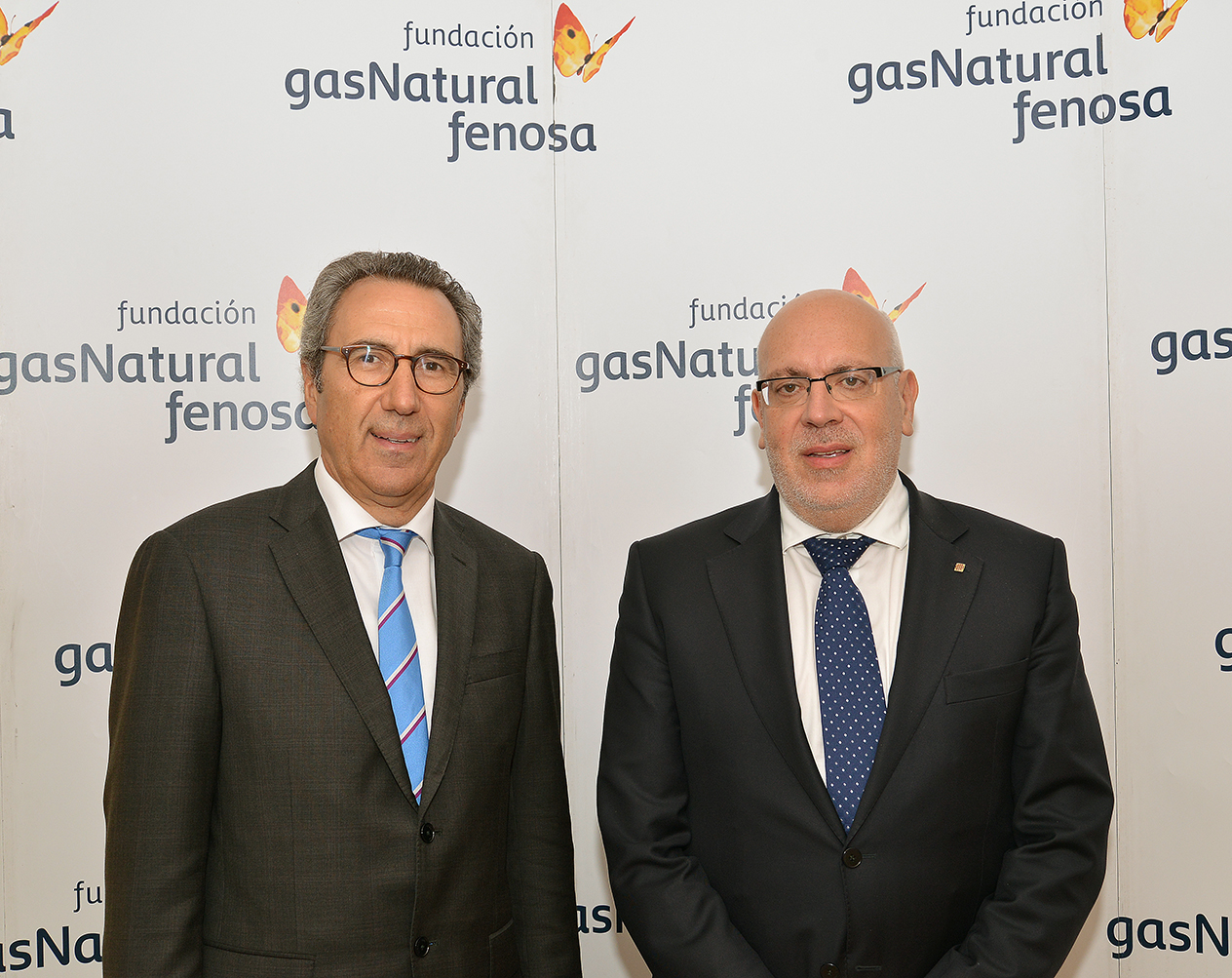Gas Natural Fenosa Foundation analyses competitiveness in Spanish chemical industry in Spain
Energy costs and transport and logistics infrastructure are key factors for improving competitiveness in the Spanish chemical sector.

Earlier today, the Councillor for Education, Employment and Economic Development of Tarragona Local Council, Francesc Roca, and the General Manager of the Gas Natural Fenosa Foundation, Martí Solà, opened the seminar entitled The Chemical Industry and Energy: competitiveness and the environment, at which discussions took place on how energy costs, transport infrastructure and EU policies are key to ensuring competitiveness in the chemical sector in Spain and Europe.
The event, which was attended by over 120 people, was closed by the Councillor for Enterprise and Knowledge of the Regional Government of Catalonia, Jordi Baiget, and the General Manager of the Gas Natural Fenosa Foundation, Martí Solà.
The Chairman of the Spanish Federation of Chemical Industries (FEIQUE), Anton Valero, stressed that the Spanish chemical industry is the industrial sector posting the most growth in Spain since the crisis and already accounts for 12.4% of Gross Domestic Product and almost 600,000 direct and indirect jobs. Anton Valero explained that it is also the second-largest exporter in the Spanish economy and the largest investor in R&D+i and environmental protection. Furthermore, he said that the chemical industry is facing high energy costs that are partly due to the fact that over 60% of regulated costs in Spain are unrelated to electricity transport and distribution.
The Chairman of the Chemical Industry Business Association of Tarragona (AEQT), Jesús Loma-Ossorio, explained that the European chemical industry has been losing its share of the global chemical industry for several years. Furthermore, the use of cogeneration in the chemical industry has fallen in Spain as a result of the energy reform and this has led to a negative effect on its energy efficiency and costs.
The Manager of Logistics Services Procurement from the Iberia Hub at BASF, Carlos José Pastor, committed to promoting intermodal transport on the Iberian Peninsula so as to obtain the same competitive advantages as those already available in Europe, highlighting the strategic nature of improved railway transport in the Mediterranean corridor. He went on to explain that BASF has set up the company Combiterminal Catalonia, S.L. in Tarragona to build and operate an intermodal freight station with a movement capacity of 115,000 freight units per year and an approximate reduction of 120,000 tonnes of CO2.
In turn, the manager from Boston Consulting Group, Alex de Mur, analysed the energy cost structure in the sector and recalled that fossil fuels are the basic raw material used. He also analysed the ethylene subsector to demonstrate the enormous impact caused by the emergence of “non-conventional” gas and oil on reducing the competitiveness of the European chemical industry in the global market.
The Director-General for Energy, Mines and Industrial Security of the Regional Government of Catalonia, Pere Palacín, presented a study on the international experience of the chemical industry and closed energy networks.
Finally, the Professor of Chemical Engineering and Professor Emeritus from Universitat Rovira i Virgili in Tarragona, Francesc Castells, explained the environmental impacts of the chemical and petrochemical industry throughout its lifecycle and said that the major challenge for the chemical sector is to bring products to market that use minimal resources and energy, thereby generating fewer negative environmental impacts. In this regard, he defended the incorporation of environmental costs into the costs structure of the sector.
The Gas Natural Fenosa Foundation
The Gas Natural Fenosa Foundation, founded in 1992, works to promote information and training and raise social awareness of improvements in energy efficiency and technological innovation in the field of energy while respecting and protecting the environment. It promotes cultural activities through its Gas Museum that are aimed at preserving and publicising the sector's historical and cultural heritage. It also has a programme to support exports for small and medium-sized enterprises. Its international activities are carried out in Algeria, Argentina, Brazil, Colombia, Costa Rica, Mexico, Morocco, Italy, Moldova and South Africa.
Tarragona, 26 May 2016
Share